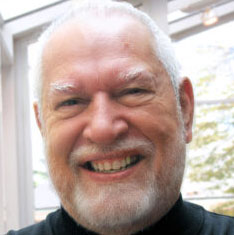Vincent and Rich travel to Ft. Detrick to visit USAMRIID and speak with Todd, Crystal, John and Jay about their careers, their research, and the mission of the US Army Medical Institute of Infectious Diseases.
TWiV describes the identification of a monoclonal antibody that provides broad protection against a variety of hantaviruses, and development of an oral remdesivir-like antiviral that ameliorates viral disease in mice.
Tony Schountz joins TWiV to explain the work of his laboratory showing that deer mice can be infected with and transmit SARS-CoV-2, and how his colony of Jamaican fruit bats is being used to understand their response to virus infections.
Vincent and Rich travel to Galveston National Laboratory to speak with Jim LeDuc, Tom Ksiazek, and Bob Tesch about their long careers as virus hunters.
Vincent speaks with members of Prometheus, a team of academic and industrial scientists assembled to develop antibody-based therapeutics against infections caused by tick-borne Crimean-Congo hemorrhagic fever virus and rodent-borne hantaviruses, for which no approved vaccines or specific drugs are available.
In the second episode from the Karolinska Institute in Stockholm, Vincent speaks with Jan Albert, Petter Brodin, and Anna Smed Sörensen about their work on enterovirus D68, systems immunology, and human pulmonary viral infection and inflammation.
Kartik and Rohit join the TWiV team to present their identification of protocadherin-1 as a cell receptor for New World hantaviruses.
The TWiV team summarizes the discovery of Sin Nombre virus, and presents evidence that neurotropic flaviviruses can cause intestinal dysmotility syndromes after systemic infection of mice.
The TWiVodes answer listener email about hantaviruses, antivirals, H1N1 vaccine and narcolepsy, credibility of peer review, Bourbon virus, influenza vaccine, careers in virology, and much more.
Vincent travels to the University of Vermont to talk with Markus and Jason about their work on HIV, influenza virus, arenaviruses and hantaviruses.









